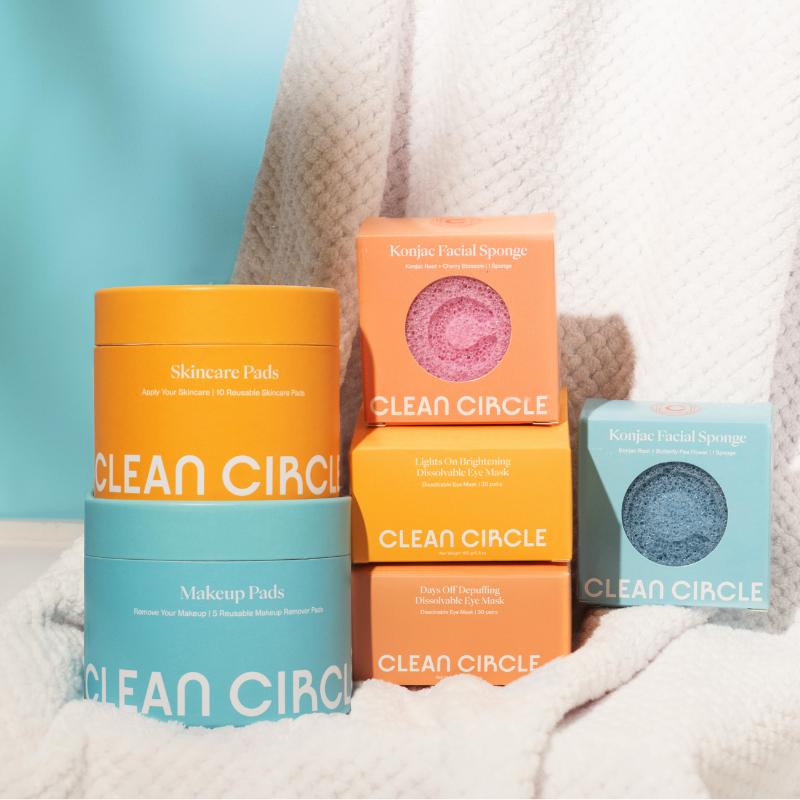Signs You Need to Exfoliate For Radiant Skin
Share
Signs You Need to Exfoliate For Radiant Skin
Exfoliation is a crucial step in any skincare routine, yet it's often overlooked. Proper exfoliation can transform your skin from dull and lifeless to glowing and vibrant. But how do you know when it’s time to exfoliate? This blog will guide you through the tell-tale signs that indicate your skin needs exfoliation, helping you achieve that enviable beauty glow.
What is Exfoliation?
Exfoliation involves removing dead skin cells from the surface of your skin. It can be done mechanically, with scrubs and brushes, or chemically, with acids and enzymes. Regular exfoliation promotes skin renewal, enhances product absorption, and leaves your skin looking fresh and healthy.
Why is Exfoliation Important?
Before diving into the signs you need to exfoliate, it’s essential to understand why exfoliation is vital:
- Removes Dead Skin Cells: Prevents buildup that can clog pores and cause dullness.
- Enhances Absorption: Helps your skin better absorb skincare products.
- Promotes Cell Turnover: Stimulates the production of new, healthy skin cells.
- Improves Texture and Tone: Leaves your skin feeling smooth and looking even.
Signs You Need to Exfoliate
1. Dull and Tired-Looking Skin
One of the most noticeable signs that you need to exfoliate is a lackluster complexion. When dead skin cells accumulate on the surface, they can give your skin a dull appearance. Regular exfoliation removes these dead cells, revealing the fresh, radiant skin underneath.
2. Clogged Pores and Blackheads
If you’re struggling with clogged pores and blackheads, it’s a clear indication that your skin needs exfoliation. Dead skin cells can mix with oils and other impurities, leading to blockages in your pores. Exfoliating helps clear these blockages, reducing the likelihood of blackheads and breakouts.
3. Flaky Skin
Flakiness, especially around the nose, forehead, and chin, is a sign that your skin is shedding dead cells at an accelerated rate. Exfoliating helps remove these flakes and smoothens the skin's surface, giving you a more polished look.
4. Uneven Skin Tone
Uneven skin tone and dark spots can be exacerbated by the accumulation of dead skin cells. Exfoliation aids in fading these spots and achieving a more even complexion. Chemical exfoliants like alpha hydroxy acids (AHAs) and beta hydroxy acids (BHAs) are particularly effective for this purpose.
5. Dry Skin That Won’t Hydrate
If your skin feels dry despite regular moisturizing, it could be due to dead skin cells preventing your moisturizer from penetrating effectively. By exfoliating, you remove this barrier, allowing your skincare products to work more efficiently and hydrate your skin properly.
6. Breakouts and Acne
Regular exfoliation can help manage and prevent breakouts. Dead skin cells can clog pores and create an environment conducive to acne. By keeping your skin clear of these cells, you reduce the risk of breakouts and promote clearer skin.
7. Rough Skin Texture
Run your fingers over your face. Does it feel rough or bumpy? This texture is often caused by dead skin cell buildup. Exfoliating smooths out these bumps, leaving your skin feeling soft and silky.
How to Exfoliate Correctly
Knowing when to exfoliate is essential, but doing it correctly is equally important. Here’s a quick guide on how to exfoliate based on your skin type:
For Oily and Acne-Prone Skin
- Frequency: 2-3 times a week
- Method: Use a salicylic acid-based chemical exfoliant to penetrate and clear pores.
- Tip: Avoid over-exfoliating as it can irritate the skin and worsen acne.
For Dry and Sensitive Skin
- Frequency: 1-2 times a week
- Method: Opt for a gentle enzyme or lactic acid exfoliant.
- Tip: Follow up with a hydrating serum and moisturizer to lock in moisture.
For Combination Skin
- Frequency: 2 times a week
- Method: Use a mix of mechanical and chemical exfoliants, focusing on oilier areas.
- Tip: Listen to your skin’s needs and adjust the frequency as necessary.
Common Mistakes to Avoid
While exfoliating can be beneficial, it’s essential to avoid common mistakes that could harm your skin:
- Over-Exfoliating: More isn’t always better. Over-exfoliating can damage your skin’s barrier, leading to irritation and sensitivity.
- Using Harsh Scrubs: Avoid physical exfoliants with large, rough particles that can cause micro-tears in your skin.
- Ignoring Post-Exfoliation Care: Always moisturize after exfoliating to keep your skin hydrated and protected.
Exfoliation is key to maintaining healthy, radiant skin. By paying attention to the signs your skin gives you, such as dullness, clogged pores, and uneven texture, you can ensure that you exfoliate at the right times and in the right way. Incorporate regular exfoliation into your skincare routine to enjoy smoother, brighter, and more youthful-looking skin.
Remember, beautiful skin is just an exfoliation away. Happy exfoliating!

